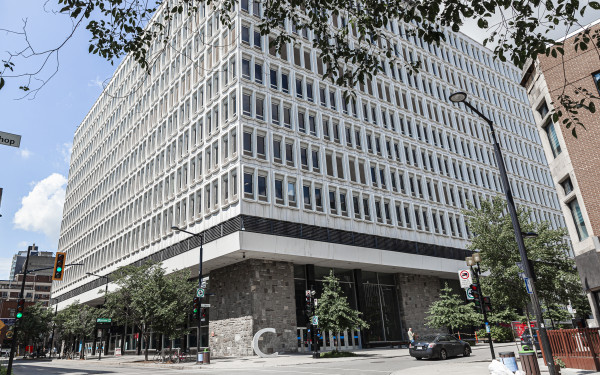All TRAC Executives Resign and Form New Union
Members Say They Need Independence From Former Parent Union
On March 13, all executives at the Teaching and Research Assistants at Concordia Union (TRAC) resigned from their roles. They have started a new, more independent union in its stead.
Due to insufficient leeway and freedom to organize from their parent union, the Public Service Alliance of Canada (PSAC), the former members of TRAC have decided to create their own union.
Called the Concordia Research and Education Workers Union (CREW), the new union will be organizing under the Confédération des syndicats nationaux (CSN), the largest confederation of unions in Quebec.
“PSAC is unable and unwilling to address the longstanding and pervasive problems facing us as teaching and research assistants at Concordia,” read the TRAC executives’ letter of resignation. “Every year, they pocket dollars from struggling student-workers, while contributing virtually nothing to improving our pay and working conditions.”
Sam Thompson, TRAC’s former president, said that leaving PSAC is the smartest choice in order for union members to fulfill their primary goal: bargaining for better wages and working conditions from Concordia’s administration.
“We want a union where the membership has a real voice, and the best way we can do that is by affiliating with CSN, who has a much more autonomous, democratic structure,” Thompson said. “We’re about to enter bargaining with the university and need to be in the strongest possible position. We haven’t had substantive negotiations for over six years and we want to win important gains.”
For Thompson, organizing under the CSN will give teaching and research assistants more leeway to fight for the causes that matter most to them, like rallying for changes to Concordia’s sexual violence policies, demands for raises and more equitable workloads. “We weren’t going to get those things with our former union, so this is the best chance we have,” he added.
According to one TRAC member and organizer behind the creation of CREW, union members need to act fast over the next few weeks.
“A lot of TAs and RAs are on board because we need better pay, better working conditions, legal rights and accounting support. The CSN has shown that they will provide those services for us,” the organizer said. “There are a lot of TAs who live in really poor conditions, which is why we need a better union. If you have issues with Concordia, we have your back.”
The organizer spent a lot of time consulting a multitude of TAs and RAs in the Concordia department for which she works. The move to CREW is popular, but most of the work needed to finalize the new union will have to take place quickly, she added.
Nonetheless, PSAC has criticized the executives for resigning and attempting to form a new union under CSN. PSAC advisor Jonathan Vallée-Payette said that leaving PSAC would not only result in ineffective change, but will have a negative impact on workers’ ability to bargain for better working conditions.
“The members who decided to quit TRAC aren’t focusing on bargaining—they’re focusing on leaving. All that energy they’re spending isn’t being spent on real goals,” Vallée-Payette said. “If we instead focus on mobilizing our members, then we can position ourselves to get the best gains possible.”
He explained that PSAC has provided TRAC with avenues for substantial gains, and that it is up to members to fully mobilize and stand up for better working conditions. With limited time before the union is supposed to enter negotiations with Concordia, Vallée-Payette said the resignations are taking up bargaining time.
According to Quebec’s laws surrounding labour unions, CREW only has three weeks to get 50 per cent of TRAC members to sign a card in support of leaving the old union and joining the new one, Thompson explained.
Once the government approves of CREW, negotiations with Concordia will begin to ensure workers are represented in all capacities TRAC had been and more, he continued.
TRAC will remain functional, leaving its parent union the responsibility of enforcing its current collective agreement with the university until CREW is up and running.
“We need to keep building power where we can to pressure our employer to meet our demands,” Thompson said.







